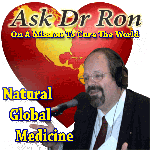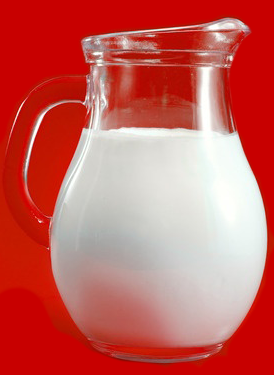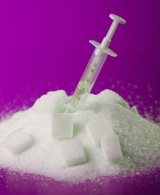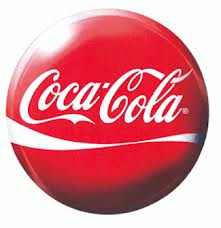~ from Dr. Ron Cherubino ~ The year was 1944. World War II was raging…
Is Pasteurized Milk Bad for Me – Ask Dr. Ron – 10 Reasons to Think Twice before Consuming Pasteurized Milk
Few areas of nutrition stir up as much emotion as the subject of pasteurized milk. Perhaps it’s because people tend to equate milk with motherly love, ice cream with parties and cheese with fun and comfort. Reinforcing these concepts is the fact that children are taught from a very early age that milk is a perfect food and that pasteurized milk is the only safe milk to consume.
So is it possible that milk and in particular, pasteurized milk, may not be good for us? In my understanding and experience the simple answer to this question is a resounding yes!
Since I get this question so frequently I’d like to take this opportunity to share some information and resources with you. In this way you can make up your own mind as to whether you want to avoid pasteurized milk and its many associated products.
Pasteurization is a double edged sword!
Pasteurization is viewed by some as a blessing and by others as a curse. It is possible to find a great amount of detail on the Internet that supports each point of view. Over the 30 years that I have practiced as a holistic physician, I have witnessed the negative effects of pasteurized milk products on my patients. I have come to the conclusion that pasteurization not only kills unwanted bacteria and other microbes in milk but also significantly alters the nutritional value and digestibility of the pasteurized milk itself.
Drink pasteurized milk at your own risk!
In my experience not everyone responds to pasteurized milk in the same way. While I am positive that it is harmful at some level to anyone who consumes it, its negative effects vary widely. Unfortunately, the dairy industry has spared no expense in painting a picture of milk as a “perfect food”. After all, billions upon billions of dollars are at stake for an industry that gains considerable profit from the increased portability and shelf life of pasteurized milk products.
On the other hand, here are 10 reasons to think twice before consuming pasteurized milk products.
- Pasteurization is a process of heating raw milk to kill harmful bacteria. Not all milk contains harmful bacteria or other microbes. Only milk from a diseased animal or milk that has been handled in an unsanitary manner, will contain harmful bacteria. Therefore, if one must consume milk products, raw milk from a healthy animal would seem to be the more prudent food to consume.
- As far back as the mid-19th century, glues were being made by heating casein, a protein found in milk. Ever wonder why there’s a picture of a cow on the Elmer’s glue label?
- During the pasteurization process milk is heated to a temperature that is harmful to the enzymes and other proteins that naturally occur in unheated raw milk. Pasteurized milk therefore contains denatured proteins.
- Denatured proteins cannot be completely broken down in the human body
- Partial breakdown of these denatured proteins results in undigested protein molecules which contribute to cellular inflammation and mucous formation. This increases waste products.
- An increase in waste products in the bodily fluids contributes to overall toxicity and can overtax the lymphatic system affecting overall immune efficiency.
- Pasteurized milk in the form of ice cream, cheese, yogurt, etc. will have the same negative effect as drinking the milk in liquid form.
- The enzymes needed to break down lactose, the sugar found in milk, stops being produced in humans between the ages of two and five years old. To continue to drink milk past the age of five spells trouble to a person’s overall health.
- Pasteurized milk contains an altered form of calcium that is very poorly absorbed by the human body. People who insist that milk should be consumed for its high calcium content are terribly misinformed.
- The calcium found in pasteurized milk is of an extremely poor quality. It is the kind of calcium that readily forms kidney stones, gallstones and phleboliths (calcification in arteries and veins).
I hope that you found this article interesting and helpful in deciding whether to consume or not to consume pasteurized milk products. Here is a link to an Ask Dr. Ron Radio broadcast on the subject of The Four Whites, including pasteurized milk.
If you have enjoyed this blog please share this with your friends and subscribe in order to receive notification of future posts by email.
 About the author: Dr. Ron Cherubino is the founder and current clinical director of Cherubino Health Center which is located just outside of Boston Massachusetts. He is a Chiropractic physician (DC) and a Doctor of Alternative Medicine (AMD). He hosts the Ask Dr. Ron Radio Show, Healthy Conversations with Dr. Ron and is the author of numerous articles on chiropractic, holistic and alternative medicine.
About the author: Dr. Ron Cherubino is the founder and current clinical director of Cherubino Health Center which is located just outside of Boston Massachusetts. He is a Chiropractic physician (DC) and a Doctor of Alternative Medicine (AMD). He hosts the Ask Dr. Ron Radio Show, Healthy Conversations with Dr. Ron and is the author of numerous articles on chiropractic, holistic and alternative medicine.
If you like this blog/article on pasteurized milk, please be sure to subscribe on the side or bottom of this page and share this with your friends.






